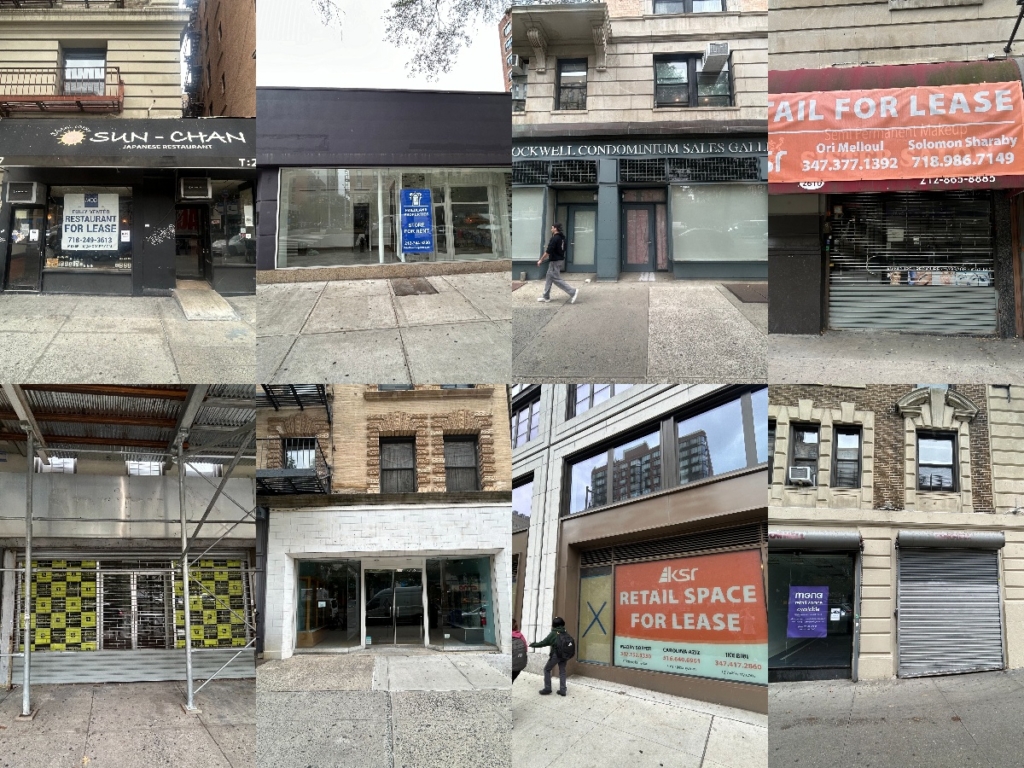
By Gus Saltonstall
A recent West Side Rag survey of ground-floor commercial storefronts revealed that there are fewer empty shops than the Rag found a year ago along Broadway on the Upper West Side. But the survey also identified a new blight in the neighborhood streetscape: abandoned illegal smoke shops.
Beginning with the positive news, the Upper West Side’s busiest commercial corridor – Broadway between West 59th and 110th streets – has more active storefronts in 2024 than the Rag found when it took the same walking survey a year earlier.
During the third week of September, when I walked the 51-block stretch, I counted 75 ground-floor storefronts standing empty, compared with the 85 vacancies I found around the same time last year.
Map of Upper West Side Broadway vacancies, click icons to get exact address. Created by Gus Saltonstall.
Where Did the Upper West Side Regain Storefronts?
The stretch of Broadway saw several new openings in large storefronts over the past year. P.C. Richard & Son opened in the expansive old home of DSW at the corner of West 79th Street and Broadway. The shuttered Victoria’s Secret at the corner of West 85th Street and Broadway was replaced by multiple smaller storefronts, including Panera and NAYA. And a new Morton Williams grocery now takes up nearly a full block of Broadway between West 68th and 69th streets, replacing what was formerly four vacant storefronts.
There are still large storefronts sitting empty, though.
The former home to Marshall’s at the corner of West 78th Street and Broadway has sat vacant for nearly two years. P.C. Richard & Son’s old location between West 86th and 87th streets and Broadway shuttered this past year. The old Face Values & Beyond storefront on Broadway near West 90th Street has been vacant for years. The Garden of Eden supermarket closed this year between West 107th and 108th streets.
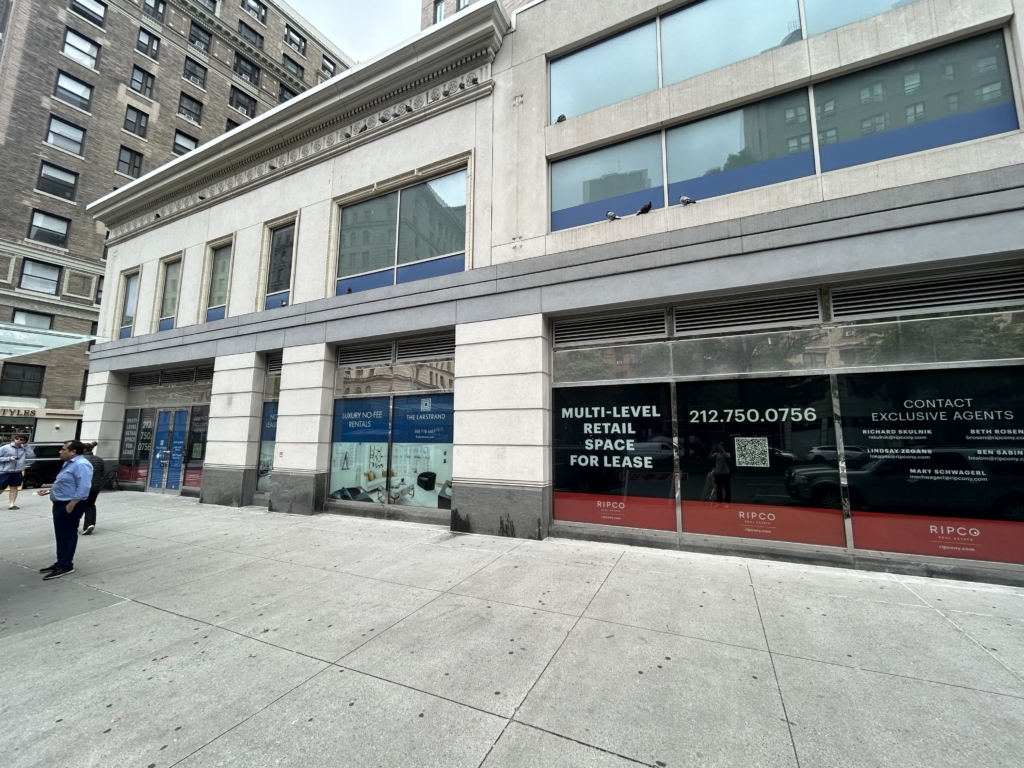
Pharmacy closures are also particularly noticeable. Large storefronts formerly home to Duane Reade and CVS are empty on Broadway at West 70th, 93rd, and 106th streets.
Past counts of Upper West Side ground-floor business vacancies show that the number of empty storefronts unsurprisingly worsened during the COVID pandemic.
Before the pandemic, a report by the Department of City Planning in 2019 listed several other factors contributing to storefront vacancies in the city: rising rents, the growing popularity of online shopping, lofty real-estate taxes, the increase of storefront space created during a construction boom from 2010 to 2018, and long-term economic disinvestment in certain neighborhoods.
Abandoned Smoke Shops
In the spring of 2024, New York City cracked down on smoke shops operating illegally in the five boroughs, including on the Upper West Side. Roughly 1,100 of these businesses that proliferated in 2023 have been shuttered across the five boroughs, according to the city.
While many welcomed the crackdown, the initiative has left behind an unclear future for the storefronts they inhabited.
As Gothamist reported, some of the smoke shop owners are fighting the closures in court, which extends the period of limbo for the businesses as the rent payments are halted during the legal proceedings. Other tenants are walking away from the leases entirely, leaving nobody to pay the rent as the landlords scramble to find a new tenant.
West Side Rag found six clear-cut examples of what appear to be abandoned smoke shops along Broadway on the Upper West Side. In other instances, it was difficult to discern whether the business was fully shuttered, due to blanketed windows and old storefront signage now hidden by makeshift coverings.
“What would be best, which is what our next step is, is to see if there are legitimate [licensed marijuana] dispensaries that want to use the spaces,” Upper West Side Councilmember Gale Brewer said when asked about the abandoned smoke shops. “Everybody wants legitimate stores and we only have two right now, 66th and 72nd street, and they are the cleanest, nicest imaginable.”

The Problem in the 90s
The Rag’s storefront survey showed that no section of Broadway on the Upper West Side had more commercial vacancies than the blocks of the West 90s. There are 27 empty storefronts from 90th Street to 99th Street on Broadway. One five-block stretch, from West 92nd to 97th on Broadway, had 16 vacancies.
Here is how that compares to the rest of the neighborhood.
- 60s: 7 vacancies
- 70s: 9 vacancies
- 80s: 17 vacancies
- 90s: 27 vacancies
- 100s: 15 vacancies
The West 90s were the only 10-block stretch of Broadway that had more vacancies when compared to the same count last year. One particularly noticeable closure in the area over the past year was the Han’s Family Market at the corner of 93rd Street and Broadway.
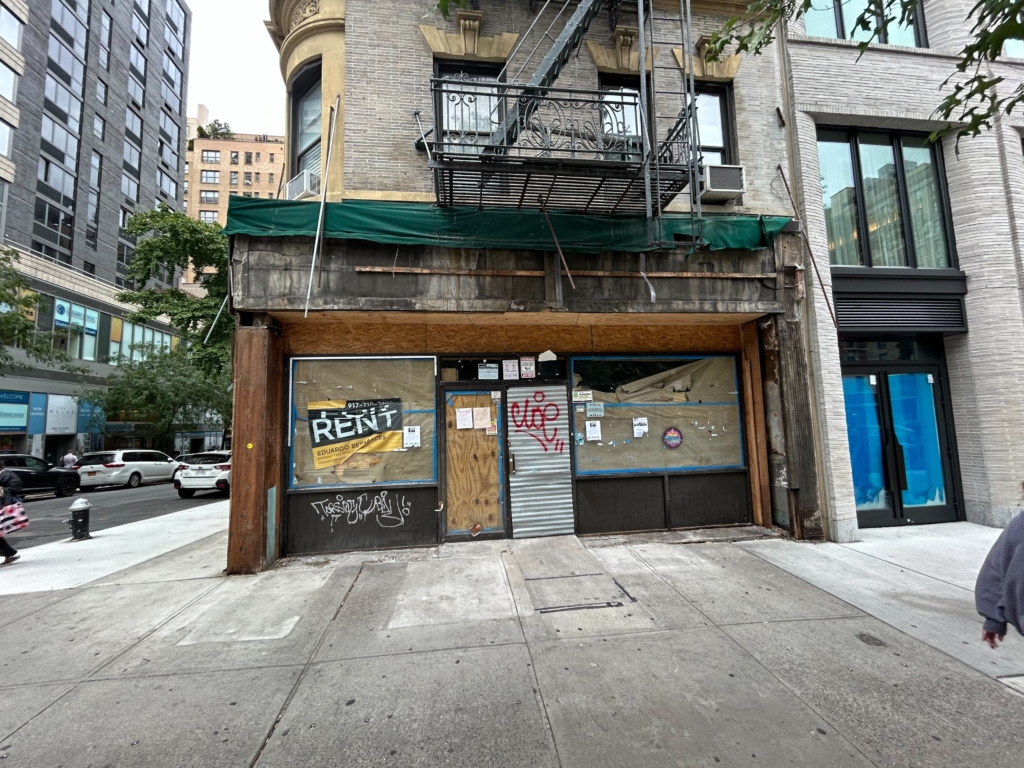
The southernmost section of the Upper West Side, which includes major areas with no commercial businesses, consistently has the lowest number of storefront vacancies. Larger buildings and structures such as Lincoln Center, Dante Park, Columbus Circle, and the 72nd Street train station, take up long stretches of that area.
Subscribe to West Side Rag’s FREE email newsletter here.



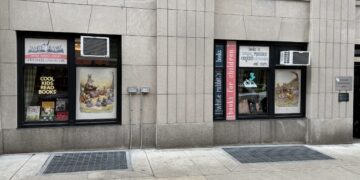
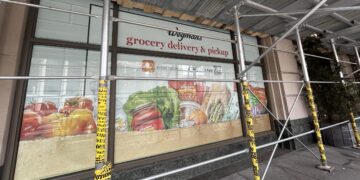




Wow, *maybe* it’s time to look at the finances of the real estate firms which own the properties with vacant storefronts? What are their stated “operating losses?” That is where the tax reduction for warehousing commercial space comes from – there are also awful examples in the neighborhood of landlords warehousing rent-stabilized housing for years after emptying the buildings out, then selling the property for a luxury tower redevelopment (see 88th & Amsterdam development)
This urban myth just won’t stop. There is no tax deduction for vacant stores (or apartments). You don’t make income, but the city taxes you as if you *are* making income. There is actually a tax penalty for vacant storefronts.
By leaving a space vacant you would potentially show a loss which allows an owner to declare that loss on their filings. This is business accounting 101, it is not an “urban myth.” It’s standard GAAP.
There is no such thing as a tax penalty for vacant storefronts in NYC.
Asking out of pure ignorance in this matter: why do some storefronts stay vacant for years, sometimes for a decade or more? Seems to me that if the owner is being taxed as if they were making income, that would create an incentive to rent it. Again, not trying to stir the pot here, just asking seeking knowledge about this.
It would be a federal tax deduction, NOT a city tax deduction.
It appears to be a deduction big co-oped buildings use for retail spaces, so not rental apartment buildings.
A high number of coops in Manhattan do not pay income tax. In order to maintain their non taxable status, they need to keep their non-shareholder income below 20%. As a result, many enter into a master lease where they get paid a fixed rent on the commerical space. That lessee then leases it for a profit. Many of these master leases were entered into on a long term basis with the former sponsor and are actually far below market and also below the 20% of total income they could earn.
The 80-20 rule was eliminated about 15 years ago: https://www.habitatmag.com/Publication-Content/Legal-Financial/2008/2008-April/End-of-the-Old-80-20
So what tax laws/deductions are these retail space lease management companies subject to?
It’s easy to see that big rental apartment buildings almost always fill empty (for rent) commercial spaces faster than big co-op buildings in the exact same neighborhood. There has to be a reason the lease management companies keep the spaces empty.
That rule was abandoned over 15 years ago. One reason for high occupancy rates in the past was the effect that rule had in keeping rents down. As leases under that rule expired rents skyrocketed.
Property taxes are not a deduction…they are an expense just like insurance, utilities, maintenance, etc. They reduce taxable income reported on Federal, State, and City tax returns.
Boris,
I didn’t say a thing about property taxes.
Screen name gertrude appears to have hit upon the answer.
The leasing companies can likely write off the commercial rent they are paying co-ops. In other words, these companies pay to “rep” the space, and then profit from the rent they can collect above the commercial rent they’re already paying, but it’s easy to see how in some instances, if they can’t gross enough above that basic commercial rent (which is part of their business expenses) they would choose to only write that rent off and NOT rent the space.
I spent a decade on a co-op board with retail spaces. There is no such deduction for retail spaces.
Again, deductions for vacant retail spaces (or apartments) is an urban myth.
There is only a tax penalty in the form of property taxes, which are assessed regardless of occupancy or store income.
You keep saying this. So please explain why there are empty retail spaces in coops? The tenants can’t like that it reduces their operating budget and potentially forces increases in maintenance or assessments for repairs. They also wouldn’t like the vagrancy and safety issues an empty storefront poses. As a share owner, I’d vote and lobby like crazy to reduce rent and get that space filled asap and not wait for a bank, cvs, or med clinic to move in.
You can do that only if the coop owns the retail space which is not always the situation. Either the sponsor or another entity might own and control it.
No landlord received a “tax reduction” for allegedly warehousing space, nor does any landlord magically come out financially ahead by warehousing space.
And rent-stabilized housing only becomes warehoused because it will cost more for the landlord to get the oftentimes decrepit apartments up to safety code than they will recover in rental income.
There are numerous reasons why storefront space is empty. Some of this space is worthless at any rent.
Ranting nonsense is not helping matters.
It’s very hard to believe that storefront space along Broadway in the UWS could be anything close to “worthless”. If it was that worthless, they should try to sell it!
Those are all legal prerogatives of a real estate owner. Maybe it’s time to look at the finances of those who go into arrears on their rents?
No landlord benefits from not renting their property. No revenue coming in and expenses going out results in lower cash flow.
If the landlord has a large loan on the building, and rents the empty space a lower rent than is comparable to other rents in the area, the bank may have to call the loan, resulting in losses for both the bank and the landlord. So both parties have a stake in pretending spaces can rent for more than the market will allow.
No, the bank would never HAVE to call in a loan. Calling a loan is a choice the bank MAY make if the borrower has violated their loan covenants (the promises they made the lender when they borrowed the money) but the lender can always choose to overlook that. They make those choices all the time.
One of two things may be happening here: owners holding out for a higher rent than they can currently get (commercial landlords hate to reduce their rent rates, as they feel they can never get that money back and, if they have a large rental portfolio, they’d be contributing to the devaluing of other properties in their inventory) or, the storefront is one of several the owner is holding in a building they intend to demolish. There’s no point in renting out a storefront in a building you’ll tear down as soon as you have all the preliminary work done.
Uh, Isn’t it up to the landlords themselves to look into the finances of business owners who want to rent from the landlords?
Thank you for confirming my point. Landlords are not keeping their space vacant for any other reason than they can’t find renters with solid financial positions. There’s only one reason landlords rent their space but numerous reasons not to.
Honest question. Let’s say you own a building and you have taken out loans on it. The loans you took out say that the property should rent for $100,000 a month. But if you can’t find anyone to rent it at that price, you’d have to take what the market will bear, which is only about $5,000 a month. Do you rent out the building?
A typical commercial landlord would resist renting at what it perceives as the bottom of the market. If they think (for whatever reason) that the rental environment will improve they’ll generally wait it out.
If there is some provision in the loan agreement that the landlord has to charge a certain rent but the landlord cannot collect this rent then the loan provision can easily be renegotiated.
The bank does not want the landlord to default on the loan.
No, not if doing so would trigger a default provision in the loan / mortgage agreement.
Why can’t they amend the loan / mortgage covenant to allow for a lower market rent?
Ellen, lower rents mean the building (collateral) is worth less than it was before, and that reduces the amount of money the real estate investor can borrow.
Real Estate Genius has just summed up the whole problem in one sentence. Both landlords and banks lose, and the cost of losing is greater to both than the years of leaving spaces empty.
But the cost to the community is greater.
There are still way too many vacancies in the 90’s, 100’s and 110’s.
Marijuana provides such opportunities for a neighborhood. I mean what is better than seeing spaced out high people laying on the sidewalk. On the medians. Or students? And the second hand health effects for everyone else. Shame on Gale Brewer. Bring back the XXX video stores. At least the patrons took it inside.
Did you learn this in a 1950’s black-and-white propaganda short reel?
“Reefer Madness!” A classic!
no she likely walks around.
This kind of hyperbole doesn’t serve anyone or provide a solution. In the big city you’re going to have to co-exist with people that share a different lifestyle than you, that’s one of the reasons I choose to live here is to experience things differently than the rest of America.
What kind of weed are you smoking that leaves you so high that you have to lay on the sidewalk? Can I have some? In all seriousness, the legal dispensaries are outstanding. Secure with an ID check at the door, selling a high quality product, and producing tax revenue, a portion of which is distributed directly into the neighborhood where they are based. They deserve all of the success they are seeing, and it would be absolutely terrific to see an expansion of legal dispensaries throughout the neighborhood. Bravo to Gale for a great idea!
Great reporting, Gus and so important to put in perspective!
Zero sympathy for the landlords scrambling to find new tenants for the abandoned smoke shops. They should never have leased the spaces to these shady enterprises in the first place. Eyesores, crime magnets and useless to 99% of folks living in the neighborhood. Good riddance.
The 3 store fronts and the Theater and offices on 2 nd floor have been empty for some time with one being empty for 13 years at 30 Lincoln
Recently visited family in Alexandria VA.
Nice and noteworthy to see so many functioning shops – including independent stores – in Old Town Alexandria.
And not just restaurants (to cannibalize each other).
There were home furnishing shops, clothing, bookstores, toy stores.
Similarly visiting the Netherlands in 2023 – people were shopping in shops in Utrecht, Leiden, Haarlem.
Very few vacancies.
Much less instant-gratification ecommerce in the Netherlands.
Great point Alisa. Why is it working there, and not here?
I have experienced the same all over Europe. Thriving retail in Spain, Portugal, France, Italy.
The retail vacancies, and the miles of scaffolding are “special” NYC specific issues I guess. Strange, given our status as the “greatest city in the world.”
I’d be very wary of the “legitimate” pot shops using veterans to front their operation.
Columbus Avenue seems to be thriving. Perhaps the issue isn’t the cross streets but the avenues. I hate walking on Broadway.
I hate waking on Amsterdam, not Broadway. Narrow sidewalks plus out-door food venues and extreme congestion make it a nightmare where I live.
Broadway was long know for “utilitarian” shops whereas Columbus – let’s say starting in the 1980s – became the place for new restaurants and cute shops (those long gone sadly).
The development of luxury buildings, E-Commerce, and rising rent have impacted Broadway..
But not everything can be a restaurant.
As a lifelong West Sider, Broadway is my favorite commercial avenue
Sure. It’s “Come Say Hi” only because someone decided to cover the “gh” and ruin a good marketing name.
RIP Garden of Eden. I used to get a lot of high quality affordable dinners from their 50% off buffet nights. I’m sad to see it still normally open on google maps – I’ve submitted 8+ reports to google over the year and they ignore them (they respond fast to reports about other stuff). Anybody know how to get a report listened to?
It is simply ridiculous that a storefront can sit on the market for a decade or more without no incentives to the owner to rent it and for the community to use it. Where are the creative lawmakers in this city/state? It does not have a win/lose proposition.
There is an incentive: property taxes are charged regardless of occupancy. My former building spent years trying to find a tenant. We offered huge discounts, even charging no rent until 3 months after opening so that they could pay for construction. It still took us two years to find a tenant.
It’s hard to find someone willing to start a business in this city. It’s very risky, and the City’s regulations are borderline abusive at times.
No one wants vacant storefronts. That there are so many is a failure of policy, not incentives.
I agree. The bottom line: we have bad government in the city–the state, as well.
I miss the Mom& Pop stores that used to line Broadway. Now when spaces are rented out it is to corporate, which doesn’t reflect the individual characteristics of an area.
Money rules everywhere in this city, especially in Real Estate.
“Everybody wants legitimate [marijuana] stores” says Gale Brewer. Really? Some people do for sure, but many people do not. Personally, I hate being unable to walk our streets without the constant stench of pot (especially as it gives me migraines), or dine outdoors without my food tasting like a skunk. I am all for people doing what they want in their homes but I don’t need them doing it in my face; it’s no different from regular cigarettes.
Agreed. Smoke shops aren’t a good use of vacant storefronts. And it’s annoying when people pretend smelling the nasty skunk smell everywhere you go is a positive thing.
Two problems with one solution: needed funds for MTA now that Guv cancelled congestion pricing, and the now-shuttered weed shops. Figure out a quick way to let the weed shops back in biz & tax them – voila, money for MTA plus no-longer shuttered shops. The shuttered shops are a blight and a problem for landlords and a rat haven (have seen a rat run from a former weed shop over the lovely produce display next door).
And for all the commenters who want to talk about the evil or danger of weed, get real – people will be using it no matter what, and have been for over half a century in the USA. Open the shops and collect the taxes, just like shops that sell alcohol.
The UWS is indeed a desert of useful stores. You can’t buy a lightbulb after 7pm . My point is the UES has a new small Whole Foods opening , a big Target as opposed to the hopefully closing one in Columbus Circle. They have all sorts of browsing shops and we have nothing. Gracious Home empty for years, same with Lowes and Banana Republic and on and on C21 also gone for years. Is it the amount of wandering homeless and homeless shelters on every block? Store owners DONT WANT TO BE ON THE UWS. That’s the story. One more thing….why does everything g shut down on Columbus avenue at 7?? Foolish. Some of us actually work and need to shop after 7.
Totally agree. I was on the UES yesterday and it’s full of vibrant , local stores . 1st/2nd/3rd Lex etc.
target is closing? and why is that good?
Hasn’t anyone heard of the law of supply and demand? No demand, no supply.
Sorely missed: not just the mom and pop shops, but the incredible convenience of having Gracious Home, Bed Bath and Beyond and Best Buy close together on Broadway. One could get everything needed for the home in record time, with
incomparable variety and (especially at Gracious Home) a staff that could answer every question.
On the one hand, you state there are no useful stores, but then you wish for Target to close? Confused.
CVS is open 24/7 and sells lightbulbs. Key Food too.
I keep looking for a place to open a new business in the UWS but the rent are so high…
The ubiquitous scaffolding that covers many of the stores on just about every block surely don’t help either.
I wonder if federal tax reductions (i.e. reporting the loss as expenses and lowering taxable income?) is some of the issue given the often-deep-pockets-landlords who may be able to forgo the income for reducing their tax burden? Otherwise, it is difficult to understand why it would make financial sense to leave storefronts empty for years, rather than seek renters, even seasonably, for possibly more reasonable rents … (some of the stores that closed have been asked to pay rent increases that were absolutely astronomical compared to what they’d paid before). There are so many things these store fronts could be, even temporarily/seasonally. If only there was a will …
I saw something in this article that I did not see mentioned. Who is going to move into these storefronts if most of you shop on amazon and have their prepped meals and groceries delivered by people driving out of control motor powered bikes that are a danger to us who actually shop locally and use a bike as transportation. Get out, walk and support local stores. That would help.
Lower rent and much lower city taxes might help…..with a major advertising campagn !
Good article, WSR. It’s useful to know what is happening – or not happening, as the case may be – in our neighborhood in terms of businesses.
I just read today that Walgreens will close some 1,200 stores as part of a restructuring plan.
I guarantee Amazon is part of the problem. people no longer have to go to the drug store expect for prescriptions and emergencies. They buy bulk online and have everything delivered.
I wish that the WSR would do an article on the business strip along Columbus Avenue from West 100 to West 106 Streets. For years the vacancies along Columbus Avenue within the last 2 decades the average # of empty store fronts has been between 30-40 %. This factor has been ignored by the local council members well as Community Board 7 for decades. Various block associations have been tying to get assistance to improve the business zone, however this has only received deaf ears. It is evident that non-profits with the support of Community Board 7 have been responsible for the intentional steering of people that are economically compromised into this particular area, thus this community continues to suffer without a functional business area with crime and grossly neglected sidewalks that contain overflowing garbage and tree beds littered with raw trash.
All of this has created a community that is stagnant and with scarce services thus the result is a poor business corridor with years of gross neglect. : In other words an isolated community that is impoverished that has been created due to intentional economical and racial segregation.
Commercial real estate broker here who has done over 700 store leases in NYC.
There is no money advantage to not collecting rent.
Stores can sit empty due to family or partnership disputes, landlord apathy, unrealistic expectations, incompetence or inertia due to factors like living abroad or advanced age. Lack of money to fix code violations, renovation plans or plans to sell can also delay tenancies. Right now there are simply more stores than tenants, a situation you see in half the small towns in America.
New York is the richest city on Earth, many of these vacant spaces could be global criminal syndicates. Or government holding houses, selling food and $40 services are just fronts. The US is corrupt from top to bottom.
Nonsense.
City regulations and poor leadership on the UWS has resulted in this issue going on for too long. And yet somehow Gale Brewer wins by landslides!